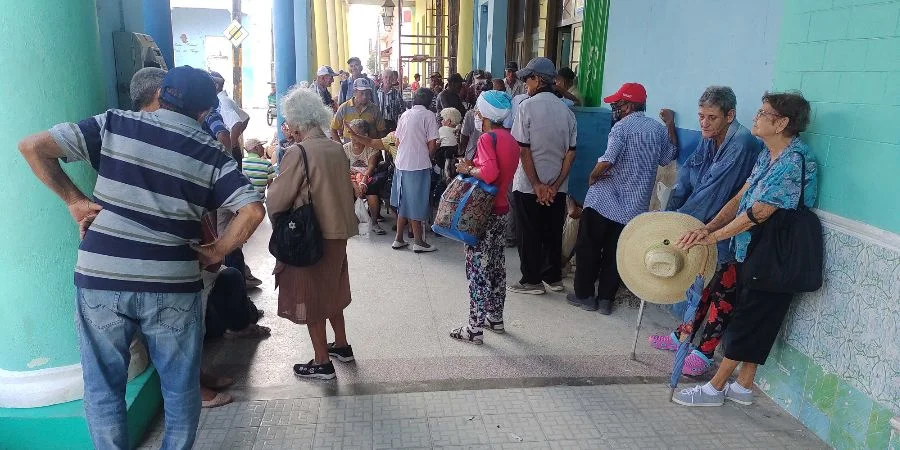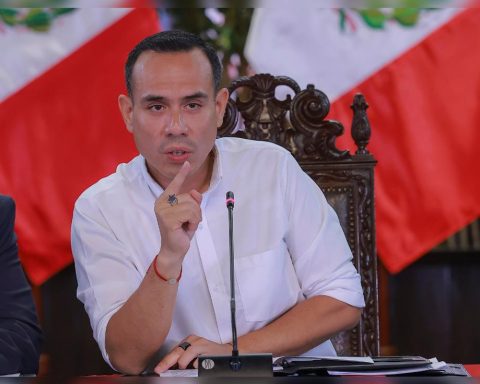On the night of October 28, the presentation document of the project that aims to reform the health system in Colombia was filed in Congress.
(Read: Postobón and Eafit University presented sustainable last mile vehicle)
Health
iStock
After a long month in which the Government opened four spaces for discussion to reach consensus with different actors, Experts agree with the fact that the articles continue to put at risk the individual protection of the right to health and do not safeguard the economy of Colombian households.
“The text did not change and the observations that were made during the technical tables were not collected, nor was there any reconciliation of texts. This new proposal assumes the position of the Ministry of Health of nationalizing the Colombian health system,” Luis Jorge Hernández, director of Research at the Faculty of Medicine of the University of the Andes and former coordinator of the Health Area of the same institution.
The fact that the text – which consists of more than 500 pages – had not incorporated specific suggestions from essential actors for the sector such as Acemi (entity that brings together the main contributory EPSs), Andi, Asocajas, Afidro, think tanks, user associations, scientific societies, among others, once again put on the table a question that has focused attention since the previous project collapsed in the Senate.: Will the Government ensure that this “new” proposal does not have the same fate as the previous one?
(Read: Puppis aims to reach more pets: it would close in 2024 with more than 30 stores)
For the former Minister of Health, Jaime Arias, a critical point continues to be the issue of health insurance. Although he highlights that the EPSs will be allowed to maintain their own network, even when their transition to Health Managers is maintained, he is also concerned that the insurance function will fall into the hands of the State. “The financial responsibility will be assumed entirely by the State. The EPS will continue, in part, working on patient management, but they will continue as long as there are resources and when they are exhausted, what will happen? That is the point: what has happened in recent years will continue to happen, resources will be exhausted,” he expressed.
On the other hand, in the discussion of the technical tables, Acemi warned that the comprehensive management of the population’s health, which is the role expected of managers, appears fragmented at the levels of care. “The disarticulation between the primary and complementary levels leads to inefficiencies and affects health outcomes. These aspects need to be corrected”said Acemi at the technical tables.
However, for sector specialists, the document remains the same as the one they filed in mid-September, along with the incorporation of several pages that contain observations and interventions from the different actors who participated in the technical tables.
They highlight, for example, that there is no clear definition of the roles and responsibilities between the Health Managers (current EPS), the CAP (new hospitals), the territorial entities and the Adres. “The role of agency and representation of the affiliate appears distributed among several actors without a visible and defined person responsible for them. It is also not clear who and how the financial risk of the system is managed to ensure the individual protection of each citizen for their health care,” Acemi previously warned.
According to Arias, the creation of new Primary Care Centers represents one of the “most profound, wrong and, above all, difficult” changes, which is to go from population insurance, such as the one that currently exists, to a territorial one.
(Read: Attorney says that no clues have been found about the purchase of Pegasus in the Duque government)
On the other hand, it is highlighted that the period of transition and comprehensive adjustment from the current system to the new one is enormously complex and involves hundreds of adjustments in the actors and their processes, which is why it is required that the Law be described and defined as much as possible. level to avoid trauma in the care of the population.
And it is that, Following the line of attention to the population, the routes for the patient to access the system are not simple or well specified. This is a situation about which patient movements have been emphatic on many occasions, without obtaining different results. At this point, it is worth highlighting that Patients Colombia (which brings together more than 198 user organizations) were not invited or included in the technical table that was established at the beginning of October in Congress.
THE TIME


















